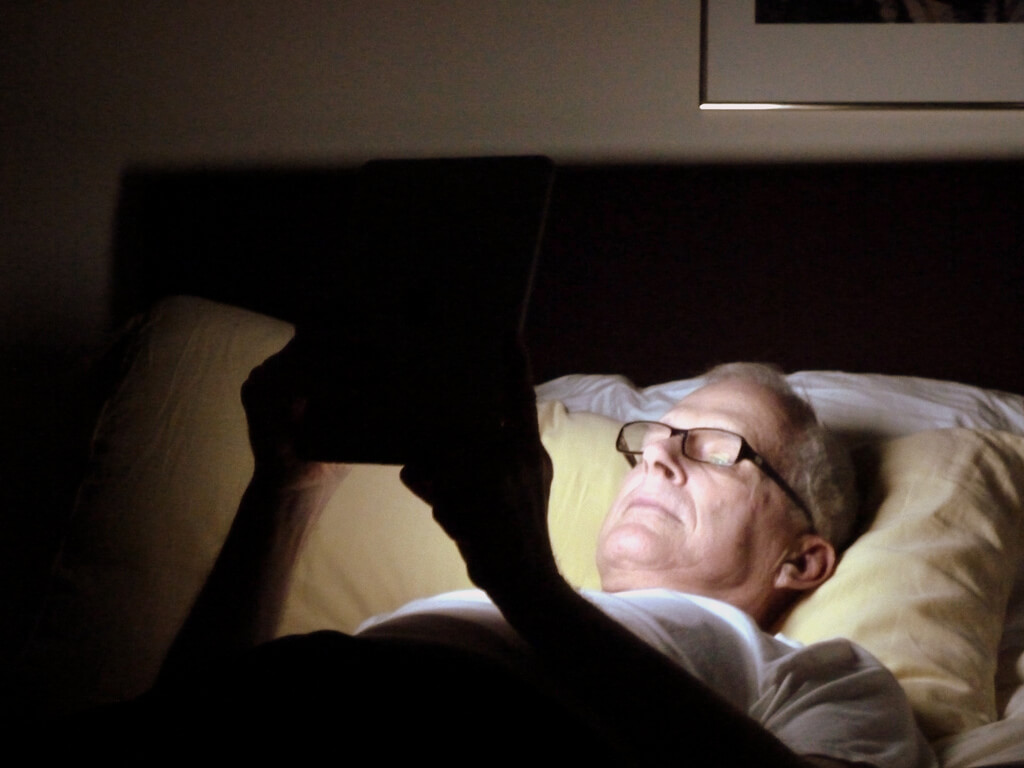Recently I had trouble falling asleep.
So, I did what I always do and pulled out my iPad to read.
Turns out eReaders are a terrible way to get to sleep.
A study recently published form the Proceedings of the National Academy of Sciences showed that iPads, Kindles and any eReader that emits light will harm your chances of getting some good sleep.
They looked at twelve healthy adults by putting them in a dim lit room (sleep lab) to read for 4 hours prior to bedtime. The participants were randomized to read either an old-fashioned print book or a light-emitting eReader.
[adsanity id=2529 align=aligncenter /]
Blood samples were taken to look at melatonin levels over time.
The eReaders were found to suppress melatonin by 55% and caused melatonin onset to occur 1.5 hours later, while print books showed NO melatonin suppression.
The eReader participants took 10 minutes longer to fall asleep than the print book readers and the eReader group had less REM sleep. This suggests that the quality of the sleep in the eReader group was poor with less deep sleep cycles.
It gets worse.
The eReader group reported being sleepier the next morning than the print book readers AND it took them several hours longer to “wake up.”
Ugh.
My late nights with the iPad reader are over.
What to take away?
At least one hour before bedtime get off the computer, smartphone and any other electronic eReader device and read from something in print on paper.
You don’t have to read by candle light, but start to wind down with an old-fashioned book.
Simple sleep hygiene measures are the most effective way to get a good night’s sleep and I think we can add avoidance of eReaders one hour prior to bedtime to this list.
Want to learn more about sleep hygiene and how to get a good night’s sleep than check out The Harvard Medical School Guide to a Good Night’s Sleep as well as these 12 steps to improve your sleep.
Well . . . good night.
[adsanity id=2529 align=aligncenter /]
The Evidence:
Chang, et al. Evening use of light-emitting eReaders negatively affects sleep, circadian timing, and next-morning alertness. Proceedings of the National Academy of Sciences, 2014.
Image Credit: 100-365 by F Delventhal on Flickr
